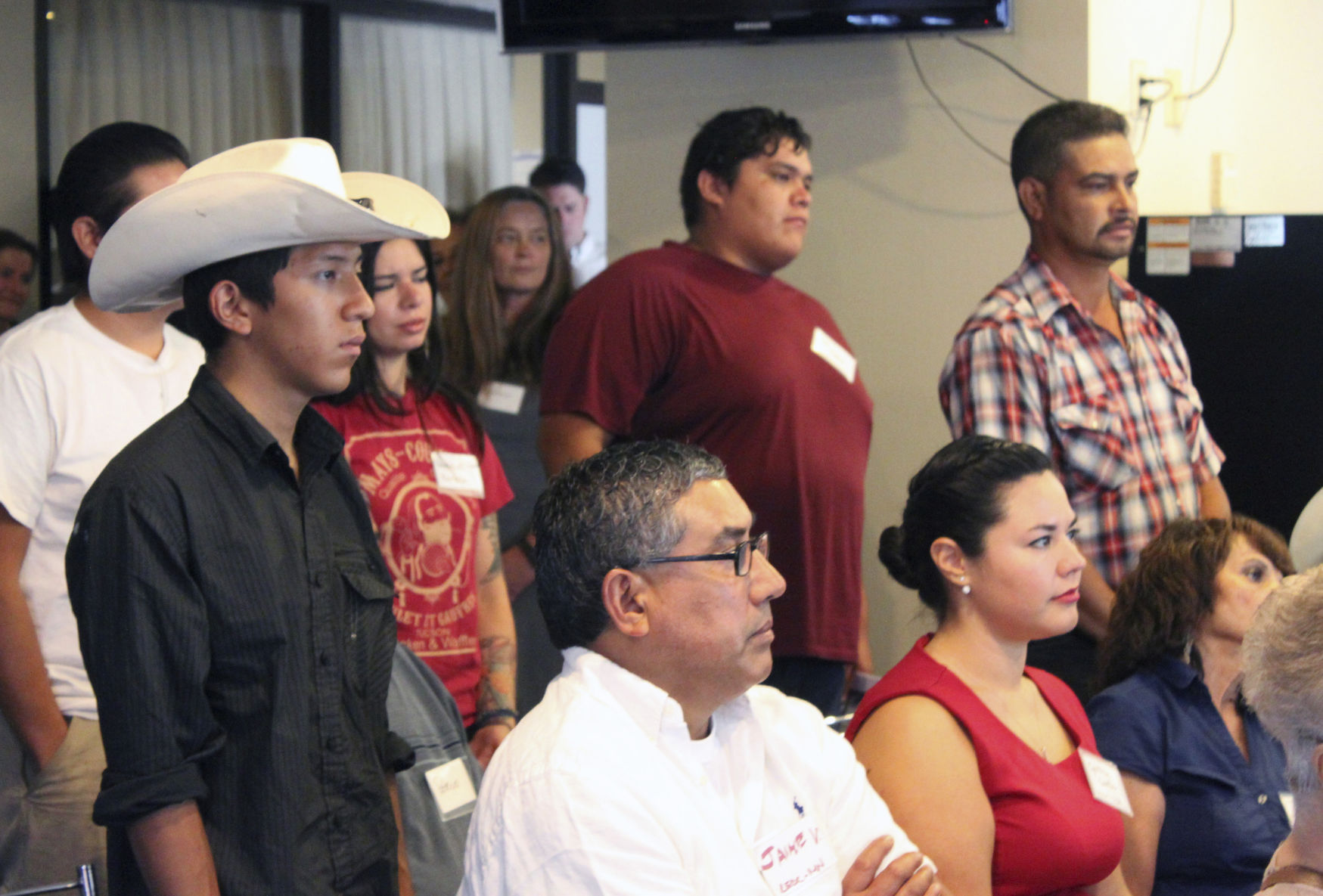ALBUQUERQUE, N.M. (AP) — A group of Hispanic ranchers has been dealt a blow in their years-long feud with the federal government over grazing rights on land in New Mexico that has been used by their families for centuries. Attorneys
ALBUQUERQUE, N.M. (AP) — A group of Hispanic ranchers has been dealt a blow in their years-long feud with the federal government over grazing rights on land in New Mexico that has been used by their families for centuries.
Attorneys for the ranchers argued that the U.S. Forest Service violated the law when deciding to limit grazing on historic land grants even though the government has recognized that the descendants of Spanish colonists have a unique relationship with the land.
The ranchers claimed the agency failed to consider social and economic effects that would result from limiting grazing in a region where poverty and dependence on the land for subsistence is high.
In a recent ruling, U.S. District James Browning dismissed remaining counts against the government, finding that the National Environmental Policy Act does not require the Forest Service to consider social and economic effects that are a direct result of an agency’s action.
The law narrowly centers on effects to the physical environment, the judge ruled.
The ranchers say they are disappointed and that the Forest Service had a responsibility to consider a history in which they claim the property rights of Hispanics have been ignored and an institutional bias has been allowed to persist.
Efforts to get the Obama administration to address discrimination and civil rights violations repeatedly went unanswered, and many of the plaintiffs saw the court case as a way to validate their concerns.
“I see this opinion as a cover up and continued support of further adverse actions by the Forest Service on socially disadvantaged native and Hispanic families,” said Carlos Salazar, president of the ranchers’ group. “I believe the agency knows they have the courts on their side and their goal is to take ownership of the land and water from the local folks.”
Confrontations across the U.S. West have erupted in recent years over allegations that the federal government is overstepping its authority and trampling property and water rights. But the dispute with the New Mexico ranchers is rooted in claims of discrimination that have spanned decades.
In motions filed over the years, the ranchers point to a 1972 policy that emerged following the raid of the Tierra Amarilla Courthouse in 1967 over unresolved land grant issues. The policy noted the relationship Hispanic residents of northern New Mexico had with the land and declared their culture a resource that must be recognized when setting agency objectives and policies.
Government attorney Andrew Smith said during a hearing earlier this year that the Forest Service was concerned given historical problems and that managers opted not to reduce grazing by greater numbers as requested by environmentalists to avoid more injury to local communities.
Grazing permits are reassessed every decade, and the Forest Service will begin another review next year.
The ranchers say it’s too early to say what effect the ruling will have on future forest planning, but they have extended invitations to the Trump administration to discuss their long-standing concerns.
“Hopefully we can get them to come and see what’s happening to the health of our rural communities,” said Dave Sanchez, vice president of the ranchers’ group.


